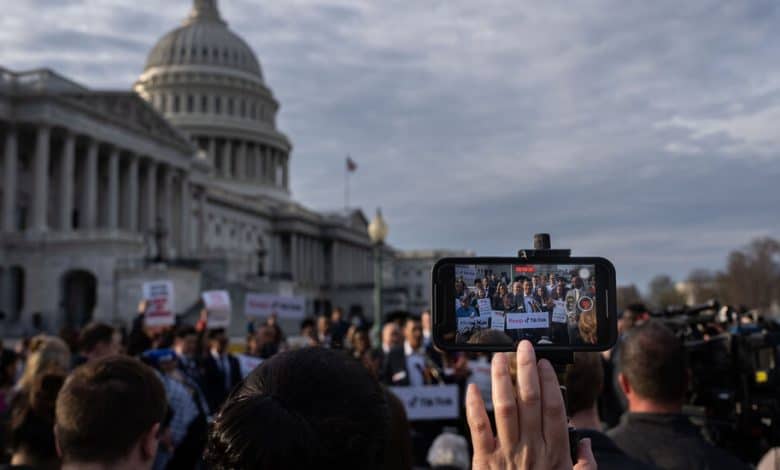TikTok Bill’s Progress Slows in the Senate

After a bill that would force TikTok’s Chinese parent company to sell the app or face a nationwide ban sailed through the House at breakneck speed this week, its progress has slowed in the Senate.
Senator Chuck Schumer of New York, the Democratic leader who determines what legislation gets a vote, has not decided whether to bring the bill to the floor, his spokesman said. Senators — some of whom have their own versions of bills targeting TikTok — will need to be convinced. Other legislation on the runway could be prioritized. And the process of taking the House bill and potentially rewriting it to suit the Senate could be time consuming.
Many in the Senate are keeping their cards close to their vest about what they would do on the TikTok measure, even as they said they recognized the House had sent a powerful signal with its vote on the bill, which passed 352 to 65. The legislation mandates that TikTok’s parent company, ByteDance, sell its stake in the app within six months or face a ban.
“The lesson of the House vote is that this issue is capable of igniting almost spontaneously in the support that it has,” Senator Richard Blumenthal, Democrat of Connecticut, said in an interview on Friday. He said that there could be adjustments made to the bill but that there was bipartisan support to wrest the app from Chinese ownership.
The slowdown in the Senate means that TikTok is likely to face weeks or even months of uncertainty about its fate in the United States. That could result in continued lobbying, alongside maneuvering by the White House, the Chinese government and ByteDance. It is also likely to prompt potential talks about deals — whether real or imagined — while the uncertainty of losing access to the app will hang over the heads of TikTok creators and its 170 million U.S. users.
“Almost everything will slow down in the Senate,” said Nu Wexler, a former Senate aide who worked for Google, Twitter and Meta, which owns Facebook and Instagram. “They’ll need some time to either massage egos or build consensus.”